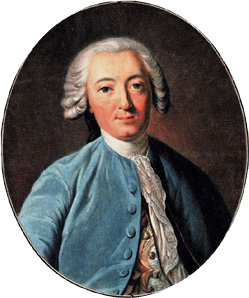
In moral philosophy, consequentialism is a class of normative, teleological ethical theories that holds that the consequences of one's conduct are the ultimate basis for judgement about the rightness or wrongness of that conduct. Thus, from a consequentialist standpoint, a morally right act is one that will produce a good outcome. Consequentialism, along with eudaimonism, falls under the broader category of teleological ethics, a group of views which claim that the moral value of any act consists in its tendency to produce things of intrinsic value. Consequentialists hold in general that an act is right if and only if the act will produce, will probably produce, or is intended to produce, a greater balance of good over evil than any available alternative. Different consequentialist theories differ in how they define moral goods, with chief candidates including pleasure, the absence of pain, the satisfaction of one's preferences, and broader notions of the "general good".

Most forms of football have a move known as a tackle. The primary purposes of tackling are to dispossess an opponent of the ball, to stop the player from gaining ground towards goal or to stop them from carrying out what they intend.

A hobby is considered to be a regular activity that is done for enjoyment, typically during one's leisure time. Hobbies include collecting themed items and objects, engaging in creative and artistic pursuits, playing sports, or pursuing other amusements. Participation in hobbies encourages acquiring substantial skills and knowledge in that area. A list of hobbies changes with renewed interests and developing fashions, making it diverse and lengthy. Hobbies tend to follow trends in society. For example, stamp collecting was popular during the nineteenth and twentieth centuries as postal systems were the main means of communication; as of 2023, video games became more popular following technological advances. The advancing production and technology of the nineteenth century provided workers with more leisure time to engage in hobbies. Because of this, the efforts of people investing in hobbies has increased with time.
Hedonism refers to the prioritization of pleasure in one's lifestyle, actions, or thoughts. The term can include a number of theories or practices across philosophy, art, and psychology, encompassing both sensory pleasure and more intellectual or personal pursuits, but can also be used in everyday parlance as a pejorative for the egoistic pursuit of short-term gratification at the expense of others.

John Stuart Mill was an English philosopher, political economist, politician and civil servant. One of the most influential thinkers in the history of liberalism, he contributed widely to social theory, political theory, and political economy. Dubbed "the most influential English-speaking philosopher of the nineteenth century" by the Stanford Encyclopedia of Philosophy, he conceived of liberty as justifying the freedom of the individual in opposition to unlimited state and social control.
In ethical philosophy, utilitarianism is a family of normative ethical theories that prescribe actions that maximize happiness and well-being for the affected individuals. In other words, utilitarian ideas encourage actions that ensure the greatest good for the greatest number. Although different varieties of utilitarianism admit different characterizations, the basic idea behind all of them is, in some sense, to maximize utility, which is often defined in terms of well-being or related concepts. For instance, Jeremy Bentham, the founder of utilitarianism, described utility as the capacity of actions or objects to produce benefits, such as pleasure, happiness, and good, or to prevent harm, such as pain and unhappiness, to those affected.
Pleasure is experience that feels good, that involves the enjoyment of something. It contrasts with pain or suffering, which are forms of feeling bad. It is closely related to value, desire and action: humans and other conscious animals find pleasure enjoyable, positive or worthy of seeking. A great variety of activities may be experienced as pleasurable, like eating, having sex, listening to music or playing games. Pleasure is part of various other mental states such as ecstasy, euphoria and flow. Happiness and well-being are closely related to pleasure but not identical with it. There is no general agreement as to whether pleasure should be understood as a sensation, a quality of experiences, an attitude to experiences or otherwise. Pleasure plays a central role in the family of philosophical theories known as hedonism.

The panopticon is a design of institutional building with an inbuilt system of control, originated by the English philosopher and social theorist Jeremy Bentham in the 18th century. The concept is to allow all prisoners of an institution to be observed by a single corrections officer, without the inmates knowing whether or not they are being watched.

Claude Adrien Helvétius was a French philosopher, freemason and littérateur.
In jurisprudence and legal philosophy, legal positivism is the theory that the existence of the law and its content depend on social facts, such as acts of legislation, judicial decisions, and customs, rather than on morality. This contrasts with natural law theory, which holds that law is necessarily connected to morality in such a way that any law that contradicts morality lacks legal validity.
A knit cap is a piece of knitted headwear designed to provide warmth in cold weather. It usually has a simple tapered shape, although more elaborate variants exist. Historically made of wool, it is now often made of synthetic fibers.
The overjustification effect occurs when an expected external incentive such as money or prizes decreases a person's intrinsic motivation to perform a task. Overjustification is an explanation for the phenomenon known as motivational "crowding out". The overall effect of offering a reward for a previously unrewarded activity is a shift to extrinsic motivation and the undermining of pre-existing intrinsic motivation. Once rewards are no longer offered, interest in the activity is lost; prior intrinsic motivation does not return, and extrinsic rewards must be continuously offered as motivation to sustain the activity.
Self-determination theory (SDT) is a macro theory of human motivation and personality that concerns people's innate growth tendencies and innate psychological needs. It pertains to the motivation behind people's choices in the absence of external influences and distractions. SDT focuses on the degree to which human behavior is self-motivated and self-determined.

Ipse dixit is an assertion without proof, or a dogmatic expression of opinion.

British philosophy refers to the philosophical tradition of the British people. "The native characteristics of British philosophy are these: common sense, dislike of complication, a strong preference for the concrete over the abstract and a certain awkward honesty of method in which an occasional pearl of poetry is embedded".
A social network game is a type of online game that is played through social networks or social media. They typically feature gamification systems with multiplayer gameplay mechanics. Social network games were originally implemented as browser games. As mobile gaming took off, the games moved to mobile as well. While they share many aspects of traditional video games, social network games often employ additional ones that make them distinct. Traditionally they are oriented to be social games and casual games.
Game, Game, Game, and again Game is a digital poem and art video game by Jason Nelson, published on the web in 2007. The poem is simultaneously played and read as it takes the form of a quirky, hand-drawn online platform game. It was translated into French by Amélie Paquet for Revue Blueorange in 2010. Its sequel is I made this. You play this. We are Enemies (2009).

The gamification of learning is an educational approach that seeks to motivate students by using video game design and game elements in learning environments. The goal is to maximize enjoyment and engagement by capturing the interest of learners and inspiring them to continue learning. Gamification, broadly defined, is the process of defining the elements which comprise games, make those games fun, and motivate players to continue playing, then using those same elements in a non-game context to influence behavior. In other words, gamification is the introduction of game elements into a traditionally non-game situation.

Loved is a browser-based platform video game developed by Alexander Ocias, an Australian graphic designer and artist. Written in Adobe Flash, the game was built over the course of about half a year in Ocias' spare time. Released online on 14 June 2010 onto various game hosting websites, it has garnered sizeable praise and scrutiny since its release, with critics finding the game to be thought-provoking while having poor controls.

Bennett Foddy is an Australian video game designer based in New York. Raised in Australia and trained as a moral philosopher on topics of drug addiction, Foddy was a bassist in the electronic music group Cut Copy and a hobbyist game designer while he finished his dissertation. During his postdoctoral research at Princeton University and time on staff at Oxford University, Foddy developed games of very high difficulty, including QWOP (2008), which became an Internet sensation at the end of 2010 with the rise of new online social sharing tools. He later became an instructor at the NYU Game Center. His most famous game aside from QWOP is Getting Over It with Bennett Foddy, a philosophical, physics-based platform game released in 2017.











